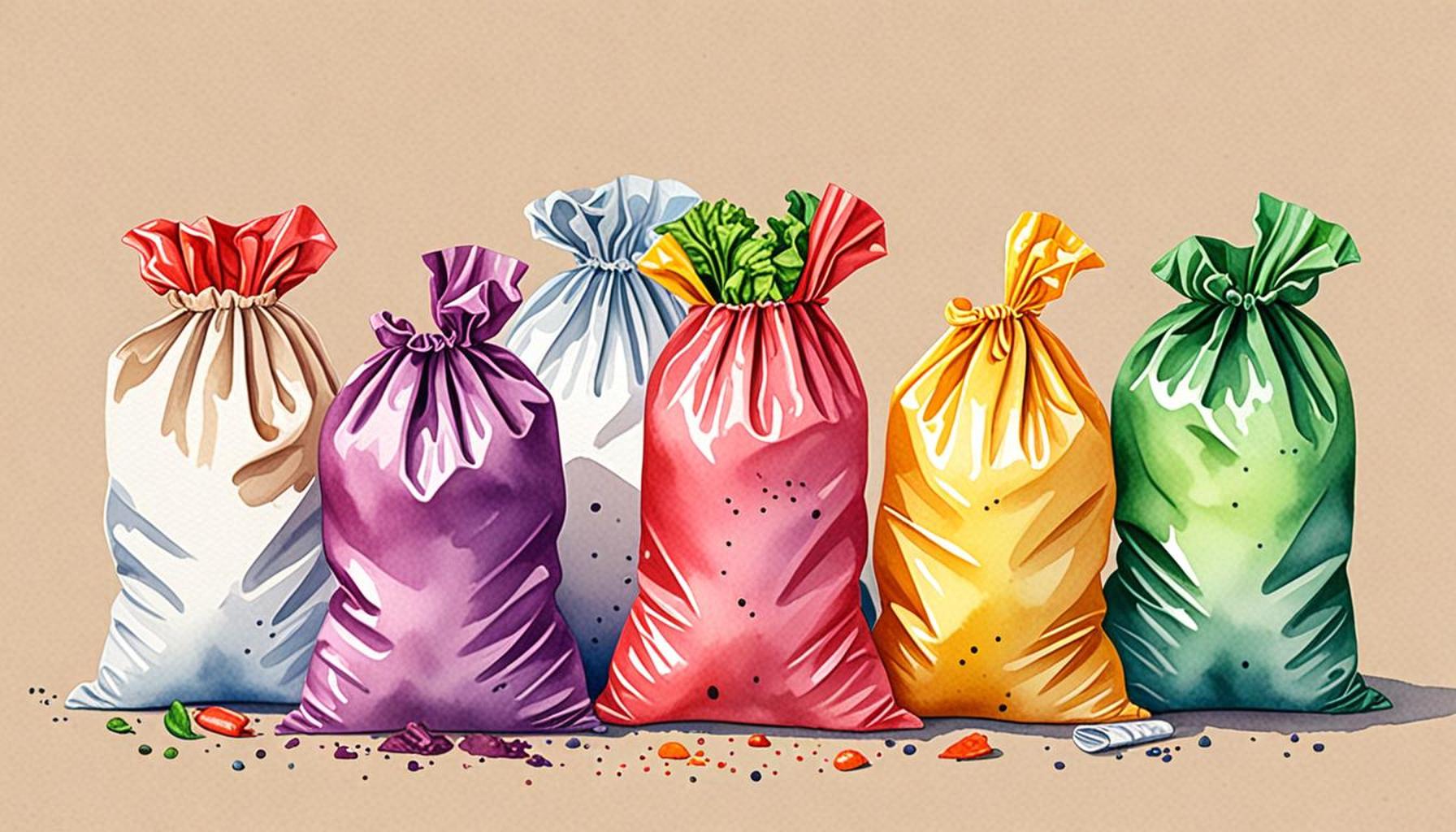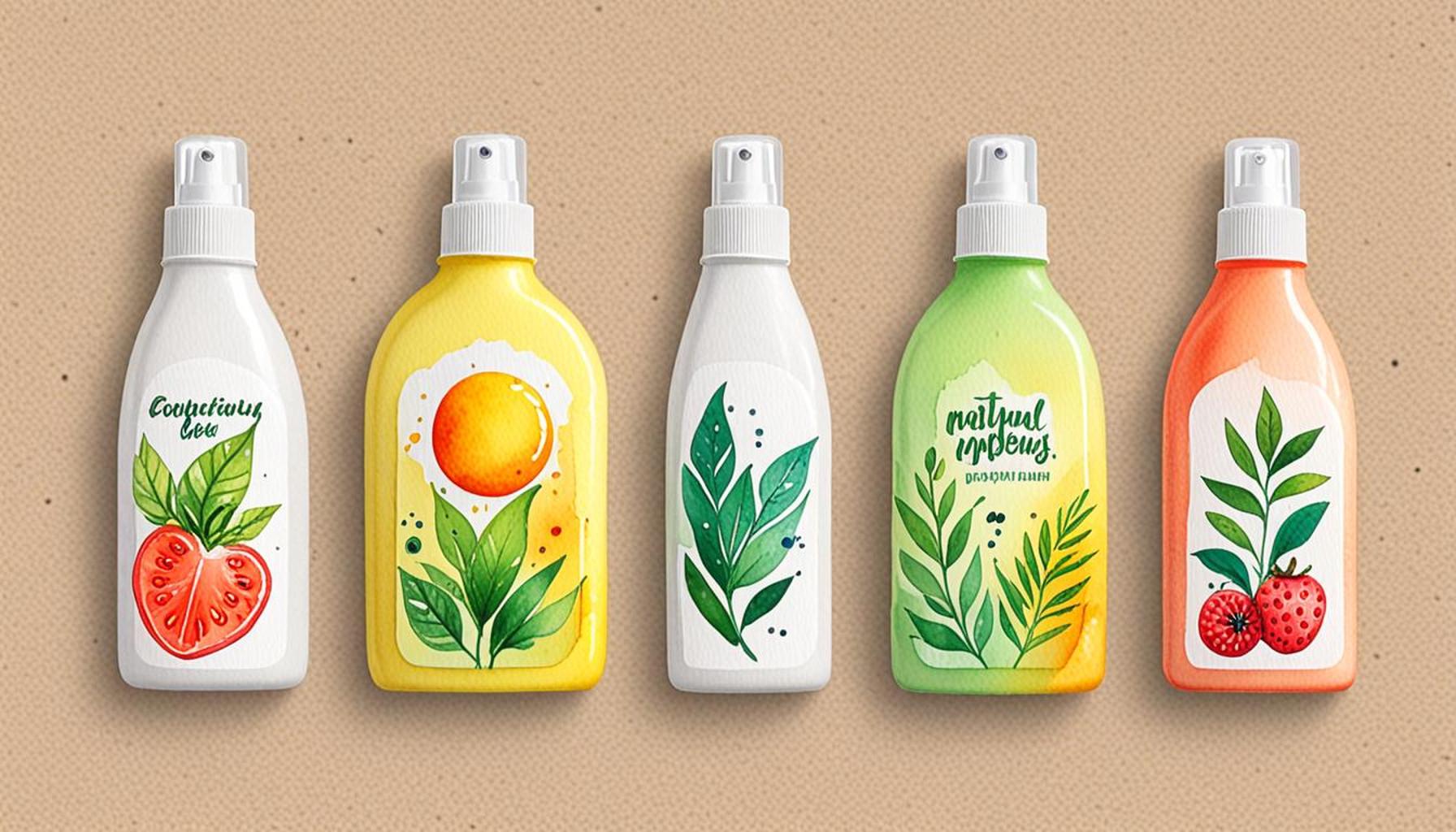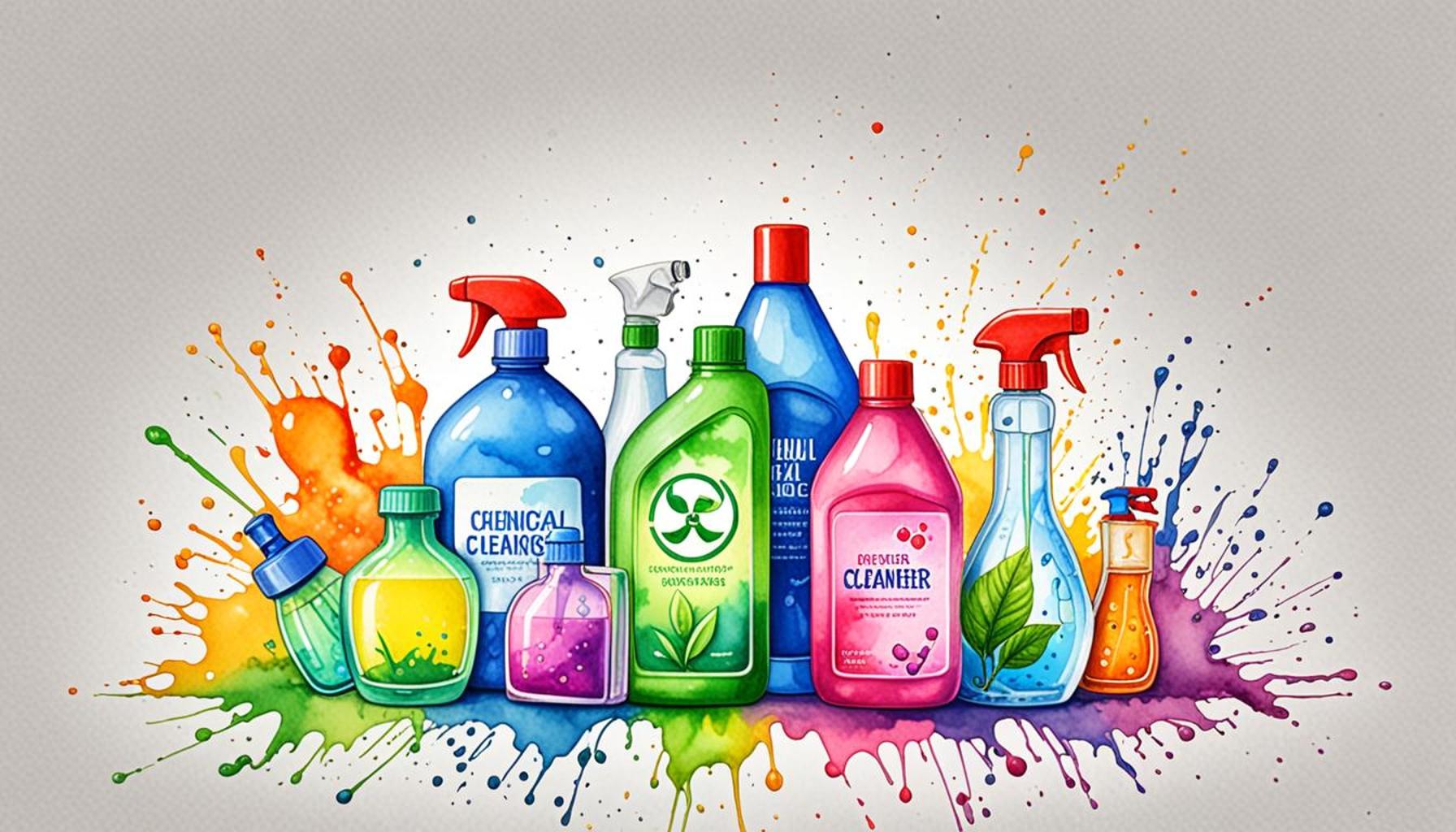Discover the Eco-Friendly Benefits of Biodegradable Household Items
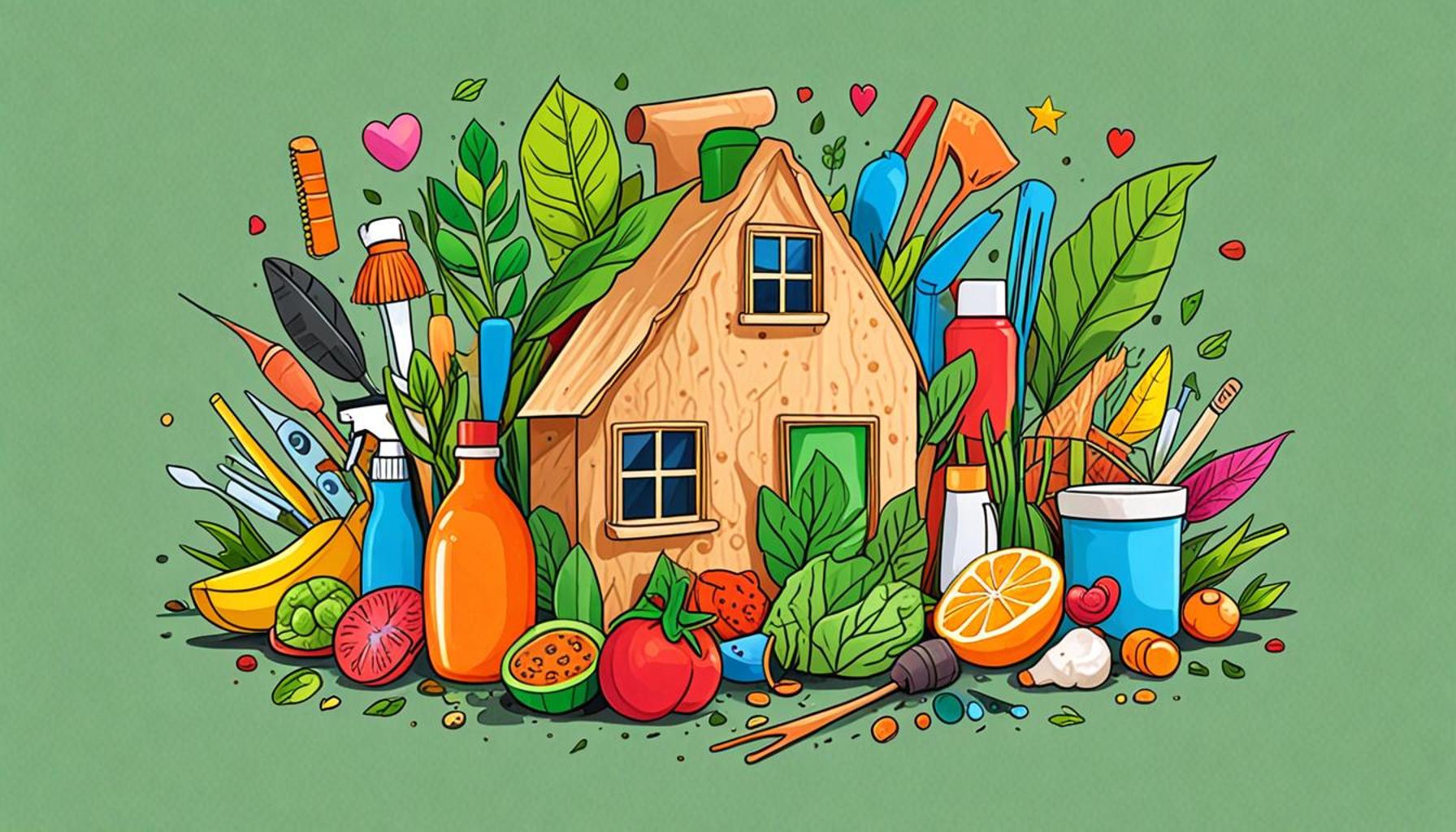
Understanding the Importance of Biodegradable Household Items
In recent years, the movement towards sustainability has gained significant momentum, urging households across the United States to reconsider the products they use daily. Among the various alternatives, biodegradable household items have emerged as a prominent solution in reducing environmental harm. These products not only combat the growing waste crisis but also encourage eco-friendly practices that can lead to a healthier planet.
What exactly makes these items a better choice? Let’s delve deeper into the benefits they provide:
- Reduces landfill waste: Conventional plastics can take hundreds of years to decompose, clogging landfills and leaching harmful substances into the ground. In contrast, biodegradable items, made from organic materials, break down naturally. For instance, compostable tableware made from plant fibers can decompose within months, significantly cutting down the amount of waste that ends up in landfills.
- Lower carbon footprint: The production of biodegradable items typically requires less energy compared to their plastic counterparts. For example, producing products from renewable resources like bamboo or corn starch not only lowers energy use but also utilizes crops that can be replanted, thus ensuring more sustainable manufacturing processes.
- Safer for wildlife: Traditional plastics pose a severe threat to wildlife, with animals often mistaking plastic items for food, leading to injury or death. Biodegradable products decompose in nature, reducing the likelihood of such encounters. For example, biodegradable fishing nets are designed to break down in water, which significantly decreases the risk of entanglement for marine life.
The waste crisis in the United States is staggering, with millions of tons of garbage produced yearly. As more households turn towards biodegradable products, a variety of options have become available. From compostable plates and cutlery to natural cleaning supplies, the range of eco-friendly products continues to expand. Consider the example of laundry detergents that are marketed as biodegradable; these products contain ingredients that break down after use, minimizing their long-term environmental impact.
As you further explore the world of biodegradable household items, you may encounter innovative products that not only help the environment but also enhance your everyday life. Imagine replacing your plastic trash bags with compostable ones or your plastic wrap with plant-based options. These small changes can collectively make a significant difference in the fight against pollution.
Are you ready to join the sustainability movement? Transitioning to biodegradable products not only benefits your household but contributes to the larger goal of protecting our planet. Embrace these changes and discover how simple choices can lead to profound impacts.
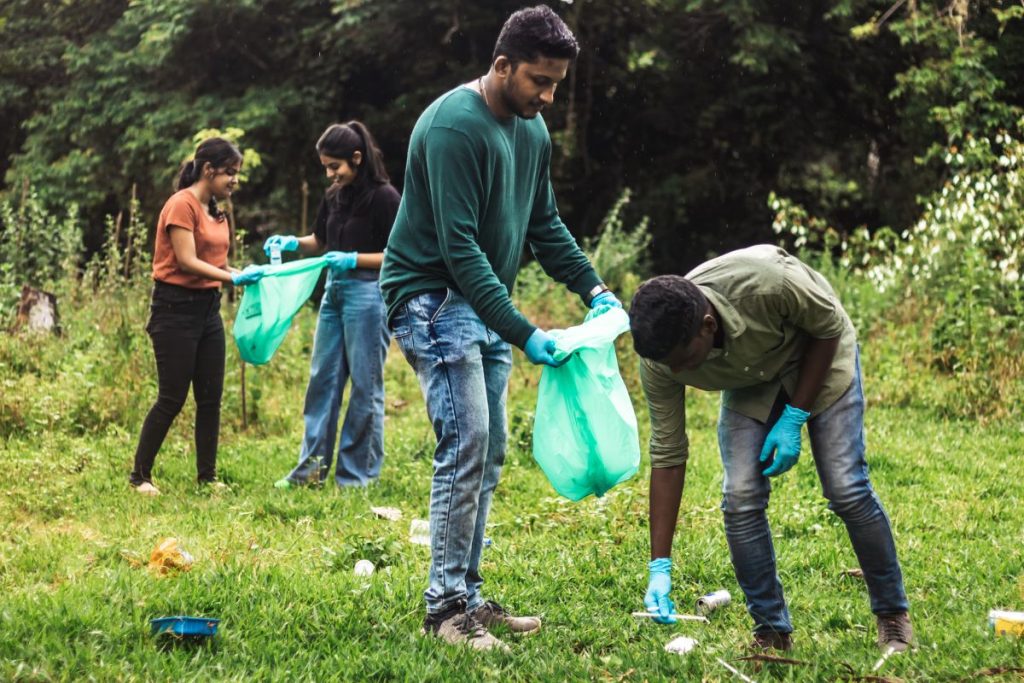
CHECK OUT: Click here to explore more
Exploring the Diverse Range of Biodegradable Products
As more consumers awaken to the environmental challenges posed by traditional household products, the market for biodegradable household items has flourished with innovative alternatives that seamlessly integrate into daily life. From cleaning products to personal care and kitchen essentials, these sustainable options not only help to reduce waste but also promote a healthier lifestyle.
One of the most compelling aspects of biodegradable items is their versatility. These products come in various forms spanning numerous categories, enabling households to transition away from conventional items gradually. Here are some prevalent examples:
- Compostable Dinnerware: Ideal for parties or picnics, these plates and utensils made from materials like sugarcane bagasse or wheat straw can be composted, turning food waste into nutrient-rich soil rather than contributing to landfill overflow.
- Eco-Friendly Cleaning Products: Many traditional cleaning supplies contain harsh chemicals that can be harmful to both health and the environment. Biodegradable cleaners are formulated with plant-based ingredients that break down quickly, making them safer for users and the planet.
- Personal Care Items: Biodegradable toothbrushes, cotton swabs, and even razors are now available, crafted from sustainable materials like bamboo or cornstarch. These products help to eliminate single-use plastic waste that pollutes oceans and landscapes.
- Trash Bags: Switching to compostable trash bags is a small yet impactful change. Unlike ordinary plastic bags that take centuries to degrade, biodegradable options break down within a few months, significantly mitigating long-term pollution.
The advantages of adopting biodegradable household items extend beyond personal convenience. They also contribute to vital environmental initiatives. For example, a significant reduction in plastic consumption can help reduce greenhouse gas emissions, as the production of traditional plastics is highly energy-intensive. Furthermore, biodegradable products can sometimes even improve soil health when disposed of appropriately, thus enriching ecosystems instead of degrading them.
According to the Environmental Protection Agency (EPA), approximately 292.4 million tons of waste were generated in the United States in 2018 alone, with plastic items contributing a hefty share. This staggering figure emphasizes the pressing need for alternative solutions, and by choosing biodegradable items, consumers can play an invaluable role in shaping a more sustainable future.
Transitioning to biodegradable products may seem daunting, but it is easier than you think. Starting with small changes, such as opting for biodegradable kitchenware or eco-friendly cleaning supplies, can collectively lead to a remarkable positive effect. As you explore the vast array of biodegradable options available, you may find that this shift not only meets your household needs but also aligns with your values of environmental stewardship.
| Category | Description |
|---|---|
| Sustainable Materials | Biodegradable household items are made from renewable resources such as plant-based materials, which help reduce dependency on fossil fuels. |
| Waste Reduction | These items are designed to decompose naturally, thus significantly lowering the amount of waste sent to landfills and minimizing pollution. |
| Health Benefits | Using biodegradable products typically means fewer harmful chemicals are present in the home, promoting a healthier living environment. |
| Consumer Awareness | Purchasing biodegradable items helps to foster environmental consciousness among consumers, encouraging more sustainable lifestyles. |
CHECK OUT: Click here to explore more
Understanding the Environmental Impact of Biodegradable Items
As society grapples with the repercussions of rampant consumerism and pollution, the importance of transitioning to biodegradable household items becomes increasingly clear. These eco-friendly products not only serve the daily needs of consumers but also play a pivotal role in mitigating environmental degradation. When we turn our attention to the life cycle of these items, the benefits become even more pronounced.
One significant advantage of biodegradable products is their ability to decompose naturally without releasing harmful toxins into the environment. For instance, biodegradable plastics are designed to break down into organic matter in composting environments, diverging sharply from traditional plastics that can persist for centuries. This decomposition typically occurs within a few months, depending on the product’s material and disposal conditions, thereby reducing the strain on landfills.
- Impact on Marine Life: The prevalence of plastic waste in oceans poses severe threats to marine ecosystems. According to the Ocean Conservancy, over 8 million tons of plastic enter the oceans every year. By using biodegradable alternatives, we can significantly curtail this influx and protect marine wildlife that often mistake plastics for food, leading to dire health consequences.
- Soil Health Improvement: Many biodegradable household items, particularly those designed for composting, enrich the soil instead of degrading it. When disposed of correctly, such as in a compost pile, they can return essential nutrients to the earth, fostering a healthier environment for growth and biodiversity. This effect resonates strongly with gardeners and farmers who prioritize sustainability.
In the United States, there is a growing awareness surrounding sustainable practices. According to a recent survey by Gallup, about 69% of Americans express concern about environmental issues, demonstrating a broad willingness to adopt greener alternatives. This shift in consumer behavior is reflected in the expanding market for biodegradable products, which now includes possibilities like plant-based laundry detergents and hair care products that flourish in circular economies where waste is minimized and resources are reused.
Furthermore, the adoption of biodegradable household items often leads to a ripple effect within communities. As eco-conscious individuals share their sustainable choices, neighbors and friends may feel inspired to explore similar options. This communal aspect not only raises awareness but also encourages local businesses to source and provide more biodegradable alternatives, fostering a collective commitment toward sustainability.
Innovative startups across the U.S. are making significant commitments toward developing biodegradable options. Companies like Bee’s Wrap have revolutionized food storage with their organic, biodegradable wraps that replace single-use plastic wrap. As these businesses amplify their visibility, they not only cater to environmentally conscious consumers but also educate them on the pressing issues related to waste, prompting informed decisions in their households.
In summary, the journey towards embracing biodegradable household items leads to broader ecological benefits, including a reduction in pollution, enhanced soil health, and greater community collaboration. The engagement in this movement is vital for future generations and bolsters the idea that sustainable living does not have to come at the cost of convenience; on the contrary, it enhances the quality of life while respecting our planet.
CHECK OUT: Click here to explore more
Embracing a Sustainable Future
As we explore the world of biodegradable household items, it becomes increasingly evident that these products represent not just an ecological alternative, but a vital step towards a more sustainable future. The shift from conventional to biodegradable options empowers consumers to take part in the fight against pollution while enhancing the health of our planet. With the alarming statistic that an estimated 8 million tons of plastic enter our oceans each year, the urgency for change has never been more pressing.
Choosing biodegradable products can lead to significant environmental benefits, including reduced landfill waste and healthier ecosystems. By actively opting for biodegradable items, individuals simultaneously contribute to soil health and the well-being of marine life, establishing a positive feedback loop that nourishes the earth. This movement is not limited to households; it also ignites a communal commitment where consumers influence local businesses to adopt sustainable practices, thereby expanding the market for eco-friendly products.
Furthermore, the rise of innovative companies dedicated to providing biodegradable alternatives showcases the boundless creativity and resourcefulness present in today’s market. As these solutions gain traction, they pave the way for a future where environmental stewardship is woven into the fabric of daily living. Every small step, from switching to plant-based cleaning supplies to using compostable kitchenware, contributes to a larger narrative of sustainability.
In conclusion, the adoption of biodegradable household items is not merely a trend—it is a necessary evolution for our society. As we embrace these eco-friendly products, we ultimately invest in a healthier planet for ourselves and for generations to come. Embracing bioplastics and biodegradable materials opens the door to a reimagined lifestyle, one where convenience coexists harmoniously with environmental responsibility. Let’s take the plunge and discover the eco-friendly benefits that biodegradable household items have to offer—we owe it to our planet.

